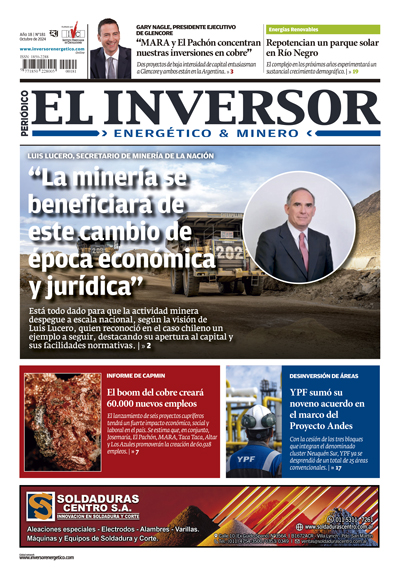No products in the cart.
Neuquén plans investments for US$ 40 million
«Beyond what happens with the Potasio Río Colorado controversial project, owned by Brazilian Vale, Neuquén mining industry will receive a total of 40 million dollars in investments,» the provincial Director of Mines, Carlos Portilla, believes.
According to his estimation, about US$ 30 million will go to metal enterprises development, while the remaining US$ 10 million will be aimed at non-metal initiatives.
«Obviously, these figures could increase exponentially if the Potasio Río Colorado conflict is unblocked,» explained the official. Though it will take place in Malargüe, province of Mendoza, the project includes the settlement of the operational base in Rincón, along with the construction of 185 km of railways in Neuquén.
So far, Neuquén mining industry has had its roots basically in the exploitation of the diverse application stones (such as aggregates, limestone, and volcanic and ornamental material), although it also produces non-metal minerals (such as clay, asphaltite, barite, bentonite, celestite, dolomite, stone salt and plaster), and –to a lesser extent– precious metals. As for employment, the sector hires more than 2,000 workers directly, and it creates between 6,000 and 8,000 jobs indirectly.
Anyway, Portilla believes that in the short- or mid-term, the province could change substantially its mining matrix and produce the same volumes of potassium expected in Mendoza. «There are four companies that, in a certain moment, showed interest in participating in the exploitation of this strategic mineral, west of Rincón de los Sauces: Bunge Minera, which already has proved to have reserves; State-run Corporación Minera de Neuquén (Cormine); Vale itself; and the local Cordillera del Viento (in partnership with K+S),» he explained.
In his opinion, Neuquén possesses the same potential as Mendoza, quantitatively and qualitatively. «We only have to progress in the legal issues, and we are working hard on this,» he pointed out.





Comentarios: